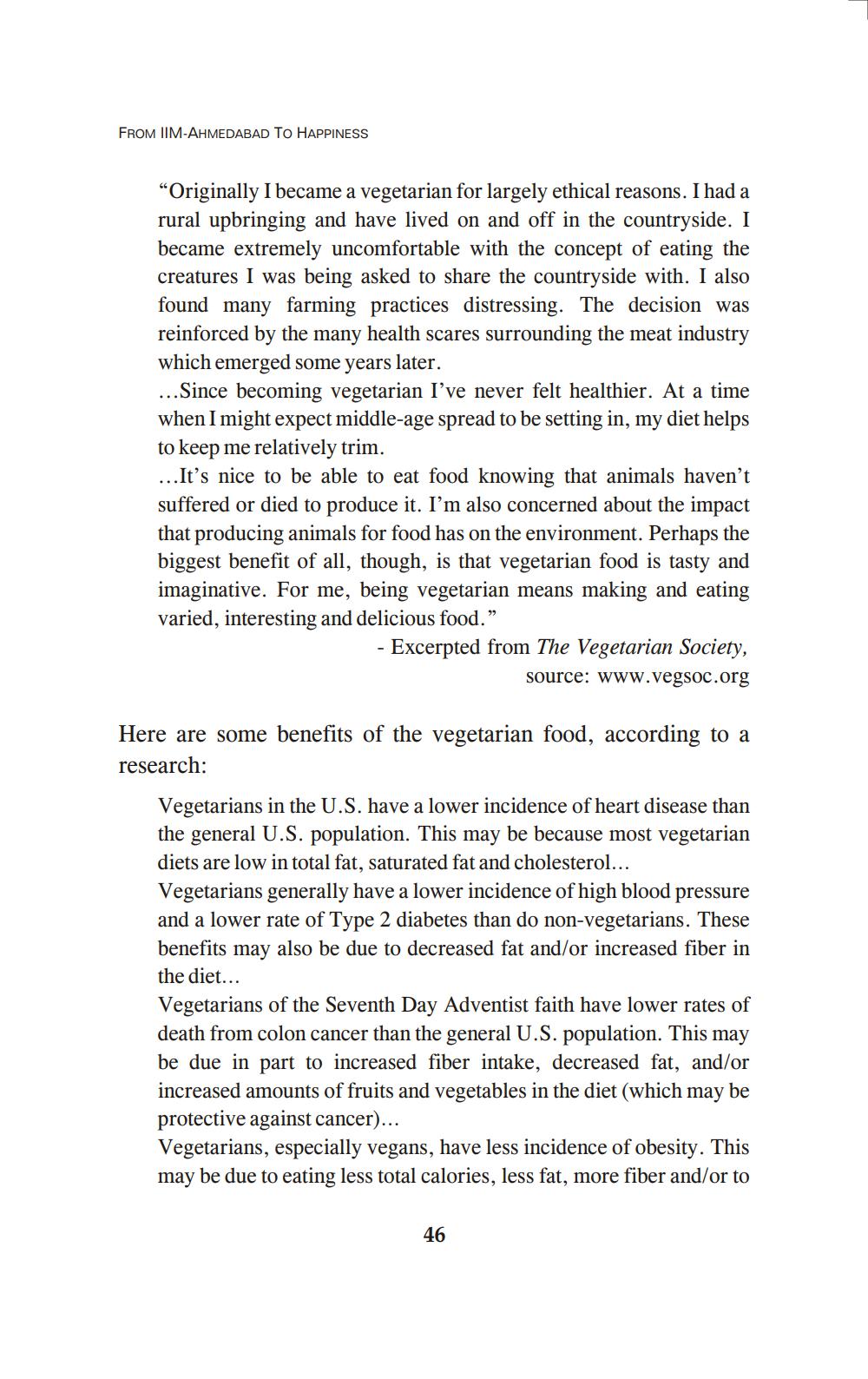________________
FROM IIM-AHMEDABAD TO HAPPINESS
“Originally I became a vegetarian for largely ethical reasons. I had a rural upbringing and have lived on and off in the countryside. I became extremely uncomfortable with the concept of eating the creatures I was being asked to share the countryside with. I also found many farming practices distressing. The decision was reinforced by the many health scares surrounding the meat industry which emerged some years later. ...Since becoming vegetarian I've never felt healthier. At a time when I might expect middle-age spread to be setting in, my diet helps to keep me relatively trim. ...It's nice to be able to eat food knowing that animals haven't suffered or died to produce it. I'm also concerned about the impact that producing animals for food has on the environment. Perhaps the biggest benefit of all, though, is that vegetarian food is tasty and imaginative. For me, being vegetarian means making and eating varied, interesting and delicious food.”
- Excerpted from The Vegetarian Society,
source: www.vegsoc.org
Here are some benefits of the vegetarian food, according to a research:
Vegetarians in the U.S. have a lower incidence of heart disease than the general U.S. population. This may be because most vegetarian diets are low in total fat, saturated fat and cholesterol... Vegetarians generally have a lower incidence of high blood pressure and a lower rate of Type 2 diabetes than do non-vegetarians. These benefits may also be due to decreased fat and/or increased fiber in the diet... Vegetarians of the Seventh Day Adventist faith have lower rates of death from colon cancer than the general U.S. population. This may be due in part to increased fiber intake, decreased fat, and/or increased amounts of fruits and vegetables in the diet (which may be protective against cancer)... Vegetarians, especially vegans, have less incidence of obesity. This may be due to eating less total calories, less fat, more fiber and/or to
46




